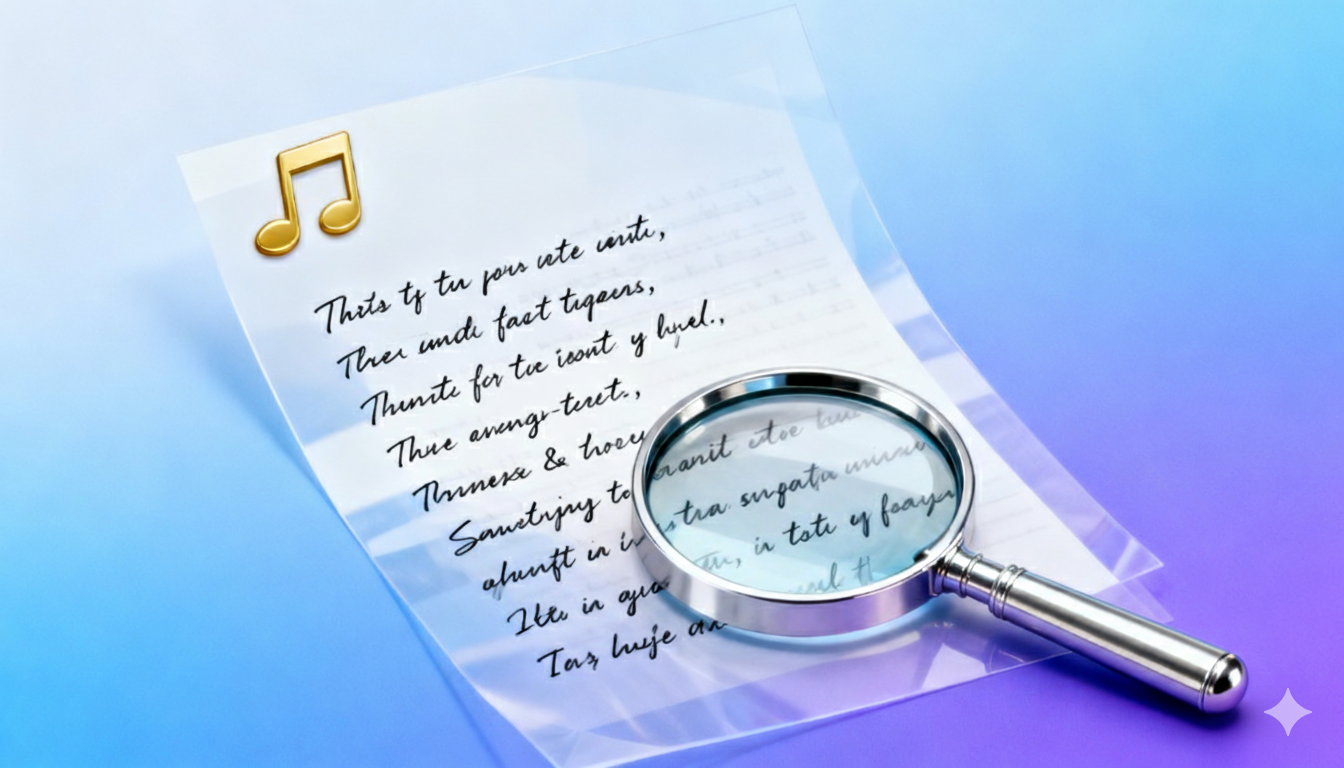
How to Rate Song Lyrics: A Concise Guide
Song lyrics are more than just words—they’re the heart of a song, shaping how listeners connect with music. Knowing how to rate song lyrics helps you move beyond casual listening to true appreciation. Whether you’re a music fan, aspiring songwriter, or curious explorer, these key steps will simplify the process of evaluating lyrics effectively.
1. Start with Emotional Resonance
The best lyrics make you feel something—and this is the first test when you learn how to rate song lyrics. Does the text evoke joy, sadness, hope, or nostalgia? For example, Adele’s Someone Like You uses raw, simple lines (“Never mind, I’ll find someone like you”) that cut to universal heartbreak. If lyrics fail to stir emotion, even clever wordplay falls flat. Emotional resonance turns a song from background noise to a personal moment.
2. Check Creativity & Originality
Unoriginal lyrics (think overused phrases like “love is forever”) feel lazy. When rating, ask: Does the writer bring fresh imagery or a new angle? Lana Del Rey’s Video Games stands out with unique visuals (“Heaven is a place on earth with you”) instead of generic love talk. Creativity doesn’t mean being confusing—it means making familiar feelings feel new. This is a critical part of how to rate song lyrics, as originality keeps lyrics memorable.
3. Evaluate Literary Craft
Lyrics often borrow from poetry, so literary tools matter. Look for:
Rhyme & Rhythm: Do rhymes feel natural (not forced) and match the song’s beat? Ed Sheeran’s Perfect uses soft, consistent rhymes (“I found a love for me / Darling, just dive right in”) that flow with the melody.
Metaphors/Similes: Do they deepen meaning? In Firework by Katy Perry, “Baby, you’re a firework” turns self-doubt into empowerment—far stronger than saying “you’re special.”
Poor craft (clunky rhymes, vague metaphors) weakens lyrics, so this step is non-negotiable when learning how to rate song lyrics.
4. Assess Coherence & Structure
Lyrics should tell a clear story or stick to a theme—no random shifts. Most songs follow a simple structure: verse (sets the scene) → chorus (core message) → bridge (adds contrast). For example, Coldplay’s Fix You builds from quiet verses about loss to a chorus of comfort (“Lights will guide you home”)—each part connects. If lyrics jump from “my dog” to “space travel” without reason, they’re hard to follow. Coherence ensures listeners stay engaged, which is key to how to rate song lyrics well.
5. Consider Context
Context adds layers to your rating. A lyric like “Fight the power” (from Public Enemy’s Fight the Power) hits harder when you know it was written to protest racial injustice in the 1980s. Ignoring context can lead to unfair judgments—so quick research (e.g., the songwriter’s inspiration, the song’s release era) improves how you rate song lyrics.
Final Tip: Practice Active Listening
To master how to rate song lyrics, listen intentionally. Jot down lines that stand out, note how they make you feel, and ask: Do they meet the criteria above? Compare lyrics from different artists—e.g., Bob Dylan’s storytelling (Blowin’ in the Wind) vs. Taylor Swift’s personal narratives (All Too Well)—to spot what works.
Rating lyrics isn’t about being “right”—it’s about learning to notice the care (or lack thereof) in the words. With these steps, you’ll turn every listen into a chance to appreciate the art of songwriting.
Start Your Song Lyrics Review Journey Today
Join thousands of music lovers who are mastering the art of song lyrics analysis.



